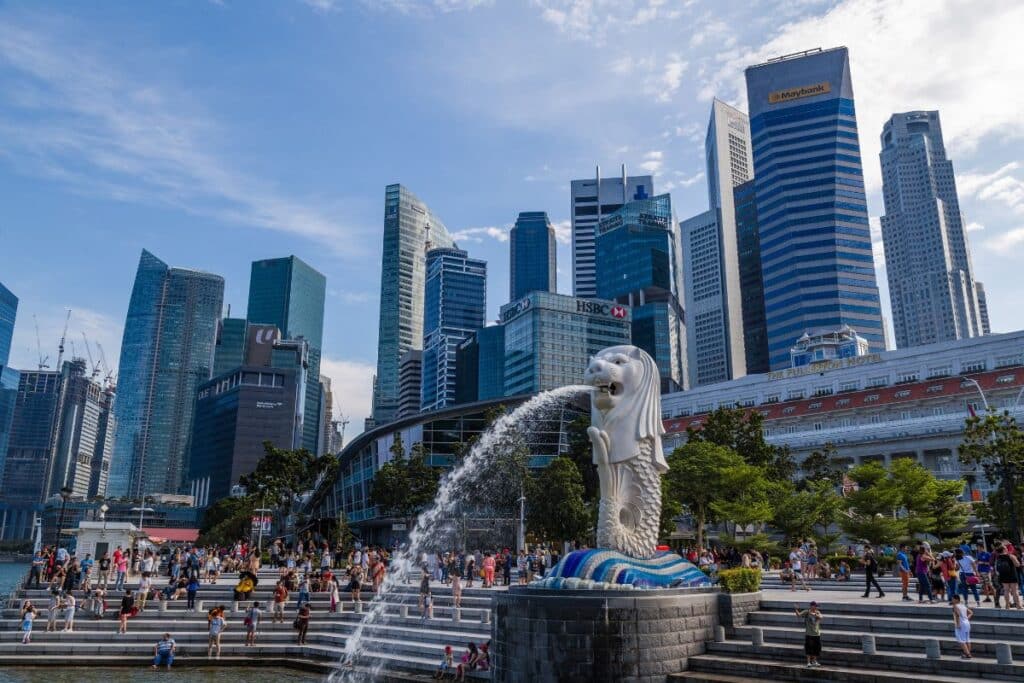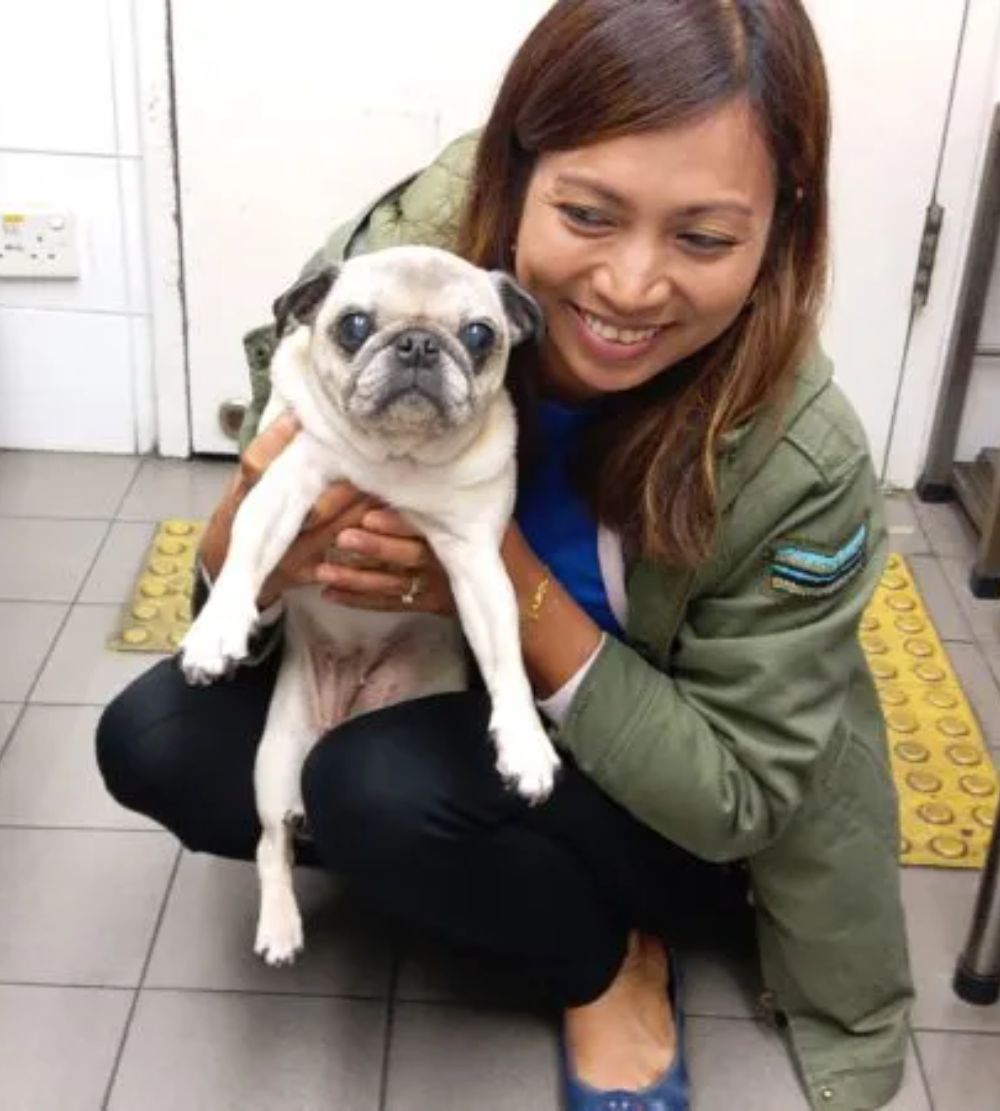Planning a move to Singapore with your beloved pet involves more than just booking a ticket. It requires careful planning and adherence to a specific timeline to ensure a smooth transition for you and your furry friend. In this guide, we will explore the timeline for moving to Singapore. Let’s delve into the detailed timeline you need to follow for a hassle-free relocation to Singapore.
1. Time to Be Over 180 Days in Another Country (If Not Born There)
If your pet was not born in the county from which you are moving, it is necessary to provide evidence that your pet has lived in the country of origin for at least 180 days before entering Singapore. This documentation can include proof of residence, travel history, etc. Ensure that these documents are in proper order to avoid prolonged quarantine periods and extra tests upon arrival. Following these requirements will help ensure a smoother and less stressful transition for your dog, cats, or other pets.
2. Waiting Period After Rabies Vaccination (Category D Countries)
Pets coming from countries categorised under Category D by the Singapore authorities, such as those with a high risk of rabies, must wait 6 months after receiving a rabies vaccination before entering Singapore. The waiting period is essential to ensure the effectiveness of the vaccine. During this time, you should monitor your pet’s health closely.
You can check the Category of your country here: Singapore Pet Import
3. Scheduling the Serology Test
A rabies serology test is required to confirm that the rabies vaccination has successfully immunised your pet. This test should ideally be scheduled soon after the vaccination, keeping in mind the required 6-month waiting period post-vaccination for pets from Category D countries. To ensure your pet is effectively immunised, it is essential to check that their antibody levels are high. This confirms that the vaccination has worked and your pet is protected against diseases. Scheduling the test promptly allows for any additional steps or booster shots if needed, ensuring your pet meets the import requirements of Singapore without any delay. There is also a particular time-window in which this test must be done, so check with us first!
4. Time for Crate Training
Start crate training your pet at least a few months before your scheduled departure as part of your timeline for moving to Singapore. This will help your pet become comfortable with being in a crate for the duration of the flight, reducing stress and anxiety. Begin the training by introducing the crate as a positive and safe space, using treats and toys to create a welcoming environment. Gradually increase the amount of time your pet spends in the crate to ensure that each experience is positive and reassuring. This gradual adaptation will make the crate feel like a familiar and secure place, easing your pet’s transition during travel to Singapore.
5. Booking Your Flight in Advance
Once you have all the necessary vaccinations, tests, and documents ready, you can book your flight. It’s advisable to do this at least 1-2 months in advance to accommodate any specific pet travel regulations or airline requirements. Additionally, take time to research and choose a pet-friendly airline that can make your pet’s journey to Singapore more comfortable. Make sure to confirm the airline’s pet policies and any fees associated with pet relocation to Singapore. Give some time to prepare a travel checklist for your pet, including their favourite toys, food, and comfort items. This can help ensure a smooth and stress-free trip to Singapore. Of course if you fly your pets as Cargo to Singapore rather than as excess baggage, you will need to use Ferndale or another pet shipper to make the cargo flight booking and we are very happy to help ensure this is all done right.
6. Reserving Quarantine Space if Needed
If your pet is required to undergo quarantine in Singapore upon arrival, make sure to reserve a quarantine space as soon as possible. The Animal Quarantine Centre in Singapore has limited space and requires advance booking, often several months ahead. However, delays in securing a spot can lead to longer waiting periods, so reserve the quarantine facility early. Contact the quarantine centre directly for the most current availability and reservation procedures. If you engage Ferndale we will be doing all these steps for you, so you don’t need to worry!
7. Applying for an AVS Pet Import License
To ensure a smooth process for moving your pet to Singapore, you, or we on your behalf, will need to apply for an import license from the Agri-Food & Veterinary Authority of Singapore. A Singapore Pet import licence is valid for 30 days from the date of issue. It’s important to submit the application in a timely manner before your pet’s arrival in Singapore. This step is crucial to ensure compliance with Singapore’s regulations on animal importation and to avoid any last-minute complications.
8. Obtaining Veterinary Health Certification
Schedule a visit to a licensed veterinarian a week or so before your travel to obtain a health certificate for your pet. This document verifies that your pet is in good health and free from any contagious diseases. It’s essential to note that the health certificate must typically be issued within 7 days before bringing your pet to Singapore. Again, if we are helping door-to-door, we will advise you on all this or just get it done for you!
Additional Considerations for a Smooth Transition To Singapore
There are a few other additional factors to ensure a smooth travel for both you and your furry friend. Beyond the basic requirements and timelines for moving to Singapore, there are key aspects to consider, such as securing pet insurance, understanding the customs regulations for bringing a pet to Singapore and helping your pet acclimate to the new environment.
Pet Insurance: Consider purchasing pet insurance that covers international travel and the initial period of your stay in Singapore. This can provide peace of mind by covering any unexpected medical expenses that may arise during the journey.
Customs Regulations: Familiarise yourself or ask us about the customs regulations regarding pet entry to Singapore to ensure you have all the required documents and understand the process upon arrival. Singapore has strict quarantine rules and health requirements for pets, including vaccinations, microchipping, and health certificates. Thoroughly reviewing these regulations in advance can help prevent delays or issues at the border.
Settling In: Once in Singapore, give your pet time to adjust to the new environment. This can vary depending on the pet, but plan for a few weeks of acclimatisation. Create a comfortable and familiar space for your pet, maintain a consistent routine, and gradually introduce them to their new surroundings. Patience and understanding during this period can significantly ease their transition.
Moving to Singapore with Pets
Moving to Singapore with a pet requires careful planning and understanding of the procedures and timelines. Start preparing well and contact Ferndale Kennels well in advance to ensure a stress-free move for both you and your pet.
Singapore has quite strict pet import regulations, vaccination requirements, and quarantine protocols. We are more than happy to assist you with this timeline for moving to Singapore. Ensuring all necessary documents are in order will help avoid any last-minute complications. Reaching out early gives us ample time to assist you with every step of the process.




